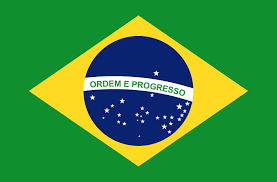- October 17, 2018
- Brazil MMA
Brazil defines proposal on the use of hazardous substances in electrical and electronic equipment
None
This news contains references also to other Substances

Hazardous substances such as
cadmium and
mercury are present in computers, cell phones, fluorescent lamps and other consumer electronics and may cause harm to the health of users of this equipment and the environment if not handled or disposed of properly.
After a series of meetings held this year, the last one promoted on Monday (25/9) in Brasilia, the
Restrictions of the Use of Certain Hazardous Substances (Brazilian
Restrictions of the use of Certain Hazardous Substances ), coordinated by the Ministry (MMA), concluded a proposal for a Draft Resolution National Council for the Environment (Conama), establishing
restrictions on the use of certain hazardous substances in electrical and electronic equipment marketed in the national territory.
Established within the National Chemical Safety Commission (Conasq), the WG is made up of 35 representatives of federal government bodies, civil society entities and representatives of the electronics industry, and had the objective of discussing and proposing appropriate legislation to the national reality. The draft will now be submitted to Conama as a MMA proposal, signed by Conasq and the institutions that make up the WG.
RESTRICTIONS
Among the GT initiatives included in the draft is the restriction on the use of lead, cadmium, mercury, hexavalent chromium, binefil polybromide, diphenyl-polybromate ether and 4 phthalates in the electro-electronic equipment.
The draft normative discussed at this last WG meeting is based on Directive 2011/65 / EU, issued by Parliament and the Council of the European Union for the first time in 2003. Therefore, the proposal is already being called "Brazilian RoHS".
According to environmental analyst Thaianne Resende, from the Department of Environmental Quality and Waste Management of MMA, the group did an excellent job in developing a consensual proposal among the entities that integrate it. "With each debate, the group has matured in relation to the initial knowledge on the subject and has grown in number of associations representing the sector of electrical and electronic equipment, providing a draft Resolution that had great participation of the sector and the government regulators," she said.
The analyst also pointed out that, considering the need to build mechanisms to protect human health, including workers who work in the manufacture, recycling and disposal of these equipment, and consumers who use the products, as well as the environment as a whole, makes it necessary and urgent to develop national strategies for the proper management of these products.
LEGISLATION
Currently, Brazil does not have laws that regulate the subject, possessing only a normative instruction that demands that the Public Power must adopt in its purchases. The idea of the group was to follow the example of regions that already adopt regulations on dangerous substances in electronics, such as the European Union.
SOURCE: mma.gov.br(Automatically translated from Portuguese)
